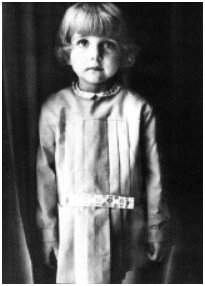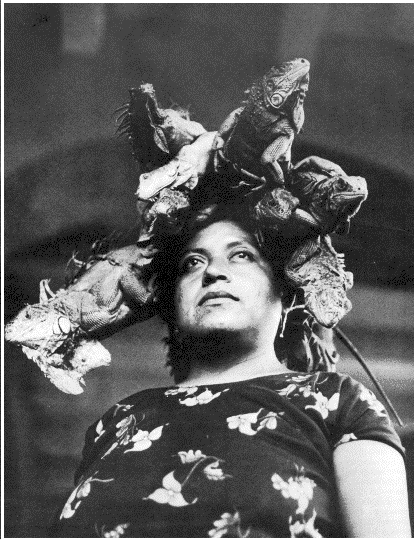Elvira

She cooked everything except codfish. Her maternal grandmother had taken care that her daughters and granddaughters did not learn to prepare that dish, because in Spain it was poor people's food, and if she had gone through so much to be able to live in Mexico, it would not be so that her descendants ended up eating dried fish, like any old starving Andalusian.
 Aunt Elvira had her mother's black eyes and her father's indiscreet mouth. A talkative, pettifogging mouth without which she could have been married before she was twenty to any Creole whose family had been in the country for fifty generations, or to one of those recently arrived impoverished Spaniards who made it in America with such good fortune. Or else, in case of an unavoidable love affair and given that her father practiced a racial tolerance that was in reality indifference, to a hardworking and abusive Lebanese. Any of these men hoped, like all others, to reside with a woman who did not go around giving opinions, or butting into men's conversations, or giving advice on how to solve the trash problem or the epidemic of governors. Women were not meant to talk about nondomestic subjects, and the less they spoke overall, the better. For the women: sewing and singing, cooking and praying, sleeping and getting up when necessary.
Aunt Elvira had her mother's black eyes and her father's indiscreet mouth. A talkative, pettifogging mouth without which she could have been married before she was twenty to any Creole whose family had been in the country for fifty generations, or to one of those recently arrived impoverished Spaniards who made it in America with such good fortune. Or else, in case of an unavoidable love affair and given that her father practiced a racial tolerance that was in reality indifference, to a hardworking and abusive Lebanese. Any of these men hoped, like all others, to reside with a woman who did not go around giving opinions, or butting into men's conversations, or giving advice on how to solve the trash problem or the epidemic of governors. Women were not meant to talk about nondomestic subjects, and the less they spoke overall, the better. For the women: sewing and singing, cooking and praying, sleeping and getting up when necessary.
It was known throughout the city not only that Aunt Elvira was full of more opinions than an opposition newspaper, but also that she had strange ways. Some as strange as staying awake until three in the morning and not being able to get up in time to go even to nine o'clock mass, which was the last one. At nine and at ten, Aunt Elvira slept in the fetal position like a baby, precisely because it didn't matter to her in which position she slept. The ladies of those days took great pains to get themselves to mass at eight and return home as soon as it was over, so that no one would think they just strolled around like yapping little dogs. From then until dinnertime, they cooked or gardened, helped their mothers or wrote chaste letters to perfect their handwriting. The more dissipated of them gossiped or memorized an emotional poem.
 In contrast, Aunt Elvira woke her belly around eleven. She spent the morning reading novels and social theory until the fierceness with which her belly felt hunger indicated it was time to dedicate herself to pitchers and basins, and to go about washing her whole body in a scattered but meticulous manner. First her crotch and its little hairs, as she was horrified by the thought that a louse might have arrived there from some corner during the night; then her armpits, from which she shaved the down with the same obstinacy as any woman; next the valley of her belly button; and finally her feet and knees. Once bathed, she put on rose lotion in the ten spots she considered fundamental, and beetroot on her cheeks. She did this last with such skill and from so young an age that even her mother was sure her daughter had a splendid natural blush.
In contrast, Aunt Elvira woke her belly around eleven. She spent the morning reading novels and social theory until the fierceness with which her belly felt hunger indicated it was time to dedicate herself to pitchers and basins, and to go about washing her whole body in a scattered but meticulous manner. First her crotch and its little hairs, as she was horrified by the thought that a louse might have arrived there from some corner during the night; then her armpits, from which she shaved the down with the same obstinacy as any woman; next the valley of her belly button; and finally her feet and knees. Once bathed, she put on rose lotion in the ten spots she considered fundamental, and beetroot on her cheeks. She did this last with such skill and from so young an age that even her mother was sure her daughter had a splendid natural blush.
Angeles Mastretta
Amy Schildhouse Greenberg,
Translator
©2004 Riverhead Books
of this book